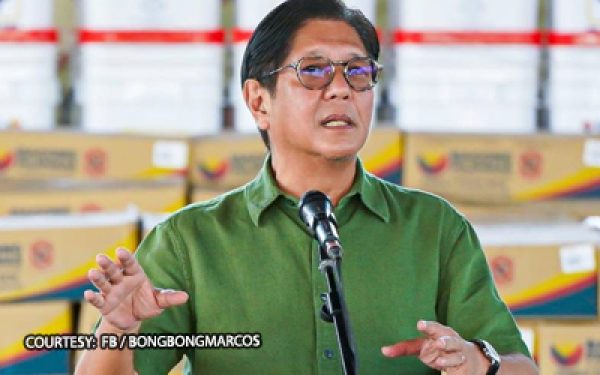Nine out of ten Filipinos believe corruption in the country has worsened.
According to the latest 3rd quarter survey, 81% of Filipinos say the problem of corruption has worsened since martial law was implemented.
About 49% of respondents said both President Ferdinand “Bongbong” Marcos Jr. and the House of Representatives share responsibility for the alleged ₱1 trillion budget realignment.
In the 2023, 2024 and 2025 General Appropriations Act (GAA), there were ₱1.4 trillion in budget insertions and diversions which were used for flood control projects, over 400 of which were “ghost” or imaginary projects.
Most Filipinos also believe Congress and the President of the Philippines should be held accountable for irregularities in flood control projects, not just the contractors.
About 29% of respondents said President Marcos should resign, while 27% recommended Vice President Sara Duterte should replace him according to succession rules.
Despite this, only 19% want President Marcos to be ousted, while 15% prefer a military junta in the country.
Due to corruption, 58% of Filipinos want Department of Public Works and Highways (DPWH) funds reallocated to education, 35% said for healthcare, and 31% for agriculture.
martial law
Martial law is not a physical place but a legal concept describing the temporary imposition of direct military control over civilian functions. It is typically declared during emergencies such as war, natural disasters, or civil unrest, suspending ordinary law and civil liberties. Historically, it has been used by governments to restore order, though its implementation has often been controversial due to its impact on human rights.
House of Representatives
The House of Representatives is the lower chamber of the United States Congress, established by the Constitution in 1789. It was designed to represent the people directly, with representation based on state population, and is responsible for initiating all revenue bills and impeaching federal officials.
General Appropriations Act
The General Appropriations Act is not a physical place or cultural site, but a legislative bill passed by the U.S. Congress. It is the primary piece of legislation that provides the federal government with the legal authority to spend money and fund its operations for a fiscal year. Its history is rooted in the Constitution’s appropriations clause, which gives Congress the power of the purse, and it is passed annually to determine government spending.
Department of Public Works and Highways
The Department of Public Works and Highways (DPWH) is the Philippines’ primary government agency responsible for the planning, design, construction, and maintenance of national infrastructure, particularly roads and bridges. It was formally established in 1868 during the Spanish colonial period and has evolved through various reorganizations to become the key executor of the country’s public works programs. Its mission is to provide and manage quality infrastructure facilities and services that are vital to national economic development.


